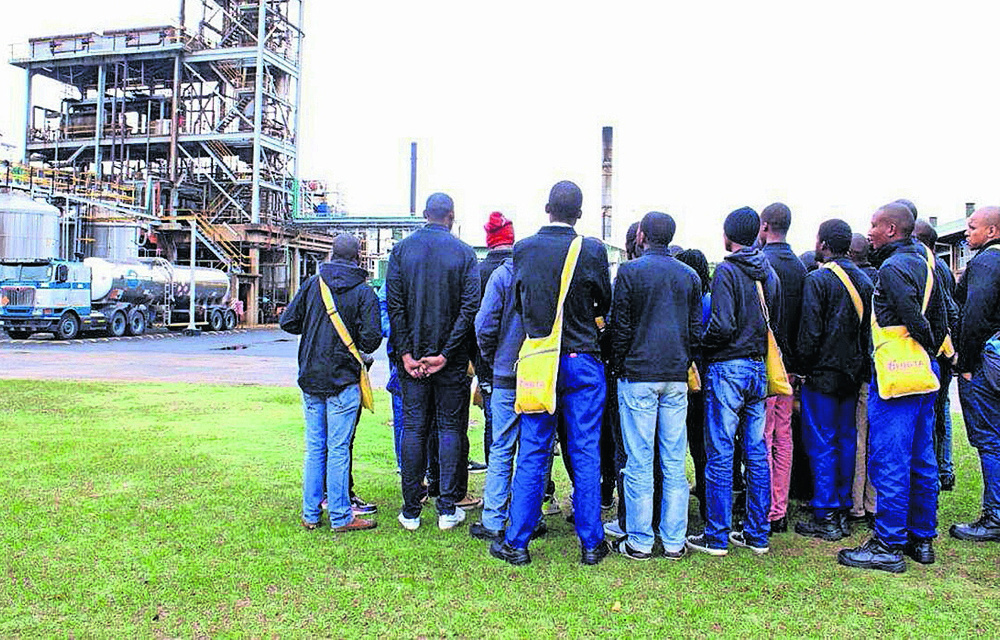
TVET colleges located in district and rural areas can play a role in training and skilling people to protect their communities against the destruction of climate change events.
Climate change and its devastating events are no longer a dystopian landscape cooked up by the fevered imaginations of film-makers. In April 2022, the storm system Issa brought long periods of heavy rain to KwaZulu-Natal, which caused flooding and mudslides, affecting more than 40,000 people and included 440 deaths. In June this year, Newcastle, Utrecht, Ballito and oThongathi experienced the destruction of a tornado that included loss of life. In the same period the Eastern Cape metros of Buffalo City and Nelson Mandela Bay had heavy floods, destroyed people’s homes and, again, loss of life.
If we are to mitigate the effects of climate change, we need to learn now, and learn fast. Technical vocational education and training (TVET) colleges located in district and rural areas can play a role in training and skilling people to protect their communities against the destruction of climate change events. They can do so through offering course programmes that not only grow the economy, but offer climate change mitigation skills to support that growth.
Climate change will hollow out any economic, social and political progress we need to make as a country. We know the risks. Our scientists have developed the models and the predictions for the next five, 10, 20 and even 50 years. Activists have warned of further inequality as people struggle to rebuild their lives after what now seems to be almost annual extreme weather events. I believe the power of public TVET education can be harnessed for greater effect by an intrinsic connection to the vision of a local integrated development plans (IDPs) of district municipalities.
A good example of what exists is the West Coast municipal district’s Integrated Development Plan 2022 – 2027. The municipality has identified climate change as a serious risk to its environmental and socio-economic stability. Energy efficiency, renewable energy, sustainable transport, food security and social resilience are among key areas of climate change mitigation for the municipality. We can move to act beyond the identified risks by equipping communities through TVET education to withstand climate change events.
While a TVET college is located in the West Coast municipality, there is no course in conservation management, in sustainable fishing and maritime practice, or sustainable infrastructure building programmes, which help municipalities and residents to withstand a tornado, a drought or a flood. There is a disconnect between public TVET courses and the needs of a local municipality. Climate change events make stark not only the needs of people at the local government level, but the continued socio-economic inequalities still with us. The economic growth plans of municipalities, and the urgency with which climate change mitigation needs to happen at the local level must rely on the public TVET college to provide local skills for local solutions to the environmental crises of our time. The opportunities to re-imagine the role and power of public TVET colleges exist in our policy landscape.
First, the incremental devolvement of higher education TVET mandates provinces and local governments. This could bring the functions of public TVET education closer to the district development model strategic environment and thus locate TVET functions in the intergovernmental planning space to leverage economic, education, labour and environmental policy frameworks.
Second, re-imagined courses can service the economic, social and environmental needs of municipalities. The colleges could, for example, offer courses in primary health care, disaster and humanitarian response management, coastal and biodiversity stewardship and sustainable agricultural practices.
Perhaps most crucially, campus should expand to rural areas so that young people have greater post-schooling options where they live. This may help stave the youth brain drain to urban centres and ensure local skills are developed for local industries by a local public TVET college.
Currently, none of these programmes are offered by a TVET college. Public TVET education is a centralised system that has no legislated policy connection to the service delivery and growth demands at the local level. And yet the colleges could provide workers trained in building sustainable social housing, energy efficient lighting and power, sustainable water systems, protect the environment to withstand destructive climate change events and so people are safe and secure. It is at the local government level that TVET colleges can play a part in aligning its offerings with the economic, social and environmental needs. Let us not lose this opportunity to re-imagine TVET colleges which are responsive and relevant to the times we live in.
Helga Jansen-Daugbjerg is a Cannon Collins Scholar, and doctoral candidate at the University of Cape Town School of Education. Her PHD research is focused on the political economy of vocational education in South Africa. She is the host of podcast Africa in Conversation https://open.spotify.com/show/01HHwBW668qaFXDQTz0B9f
 (1).png)
 6 months ago
42
6 months ago
42


















